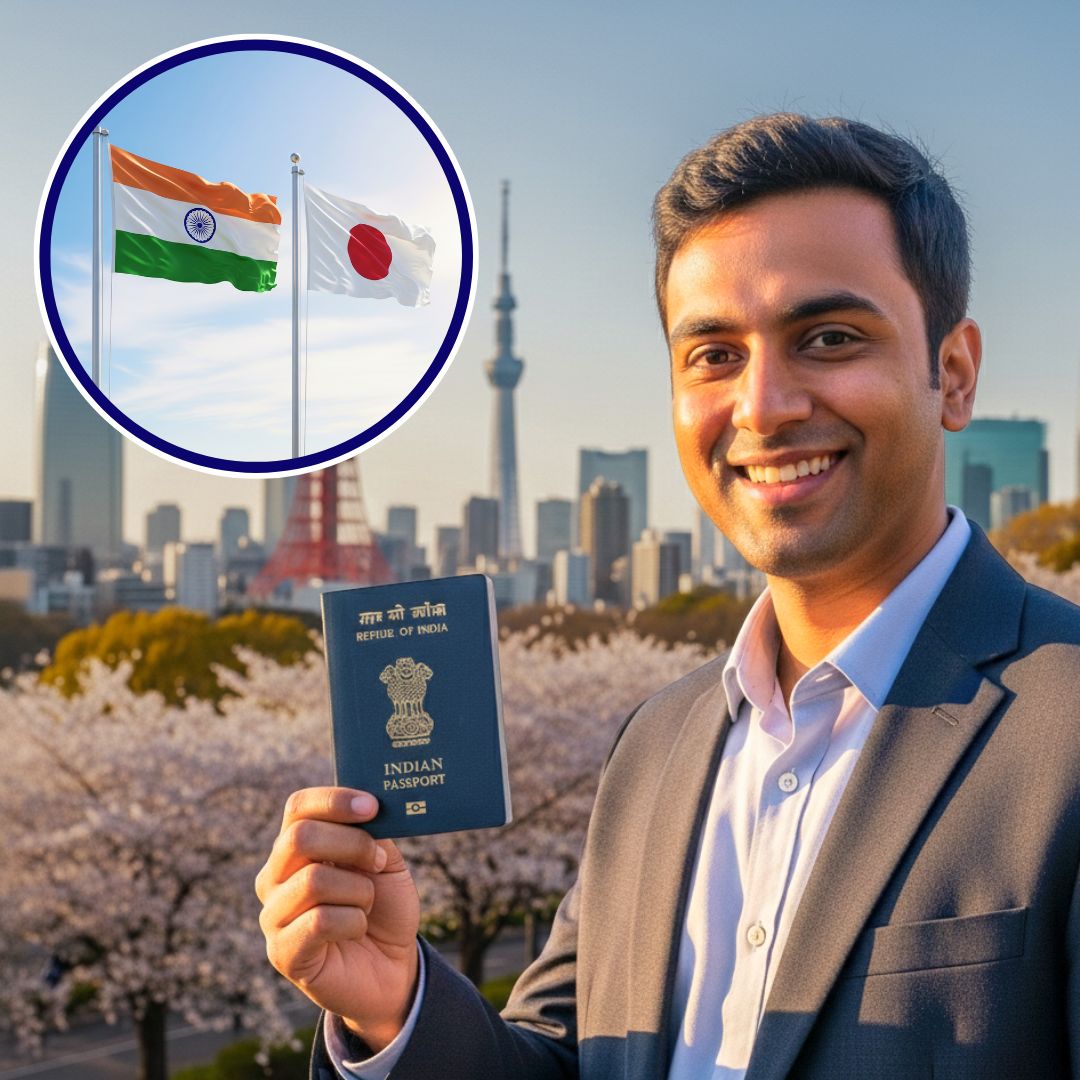Japan now offers a streamlined, affordable process for Indians to apply for permanent residency, allowing indefinite stay, work, and study opportunities in the country. Eligible Indian applicants must have lived in Japan for at least 10 years or meet points criteria for skilled professionals to apply sooner.
The application is simple, requiring key documents and an application fee of approximately Rs 5,000 (8,000 yen). This move aims to boost bilateral relations, attract talent, and address Japan’s demographic challenges, with officials urging compliance with residency and documentation requirements.
Who Can Apply? Eligibility and Application Process Explained
To be eligible for Japan’s permanent residency visa, Indians must generally have:
- Lived continuously in Japan for at least 10 years, including 5 years under a valid work or family visa, or
- For highly skilled professionals scoring 70 points, residency of only 3 years suffices, and those with 80 or more points can apply after 1 year.
- Financial stability, a clean criminal record, and good conduct, including tax payments, are mandatory.
- Those married to Japanese nationals/permanent residents for over three years and residing in Japan at least one year can apply sooner.
- Children of Japanese nationals or permanent residents can also apply after one year of residence.
Applicants must submit documents including the application form, valid passports, residence cards, proof of income, tax certificates, social security contributions, and guarantor letters. All documents must be in Japanese or accompanied by certified translations.
The application fee is 8,000 Japanese Yen (around Rs 4,789), payable via revenue stamps. Processing times vary between 4 to 8 months, and applicants must maintain a valid visa throughout. Permanent residency is maintained by residing physically in Japan for more than six months each year.
Background: Japan’s Demographic Challenges and Attracting Global Talent
Facing a declining population and ageing workforce, Japan has eased permanent residency requirements to attract foreign skilled workers and residents, including a growing Indian community. Permanent residency grants benefits such as unrestricted employment rights, easier banking and loan access, and exemption from frequent visa renewals, enhancing life stability and integration.
However, new residents should be aware of tax obligations, including worldwide income declarations after certain years. This policy aligns with Japan’s strategic goals to sustain economic growth and cultural diversity.
The Logical Indian’s Perspective
The Logical Indian views Japan’s approach as a positive step towards fostering multicultural inclusion and international collaboration. While the simplified process benefits applicants, it is crucial to foster societal acceptance, cross-cultural understanding, and community support to ensure harmonious integration.
Countries like Japan must continue to enhance communication and social programmes to embrace new residents, cultivating empathy and cooperation.













